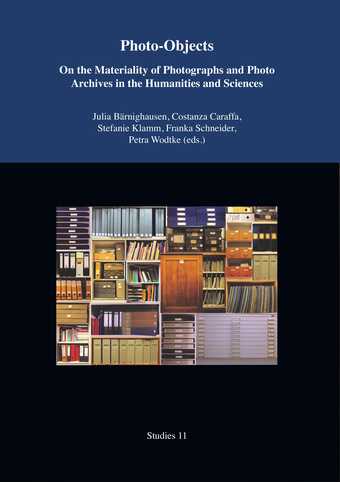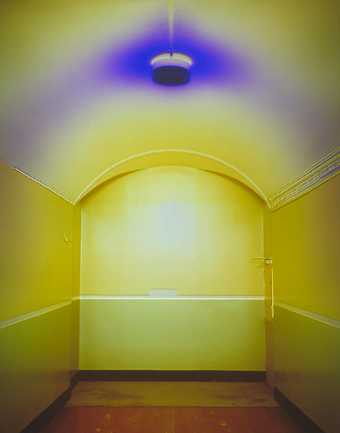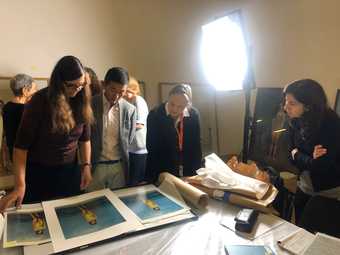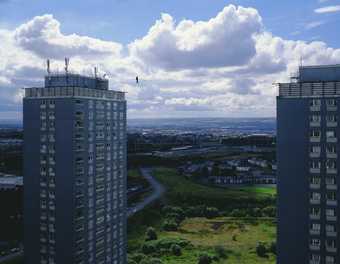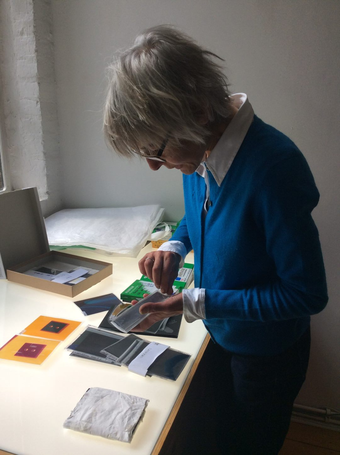
Catherine Yass, during a research visit to in her London studio in 2017, with components used in the production of Corridors 1994. This series was created using a distinctive process, with images taken using a four-by-five-inch plate camera loaded with a double-sided dark slide. Research into how Corridors was produced has developed our understanding of the social, material and technical networks that support the work.
The fast-changing world of commercial photographic processing and printing is often perceived to have moved away from skills and crafts (for instance in the darkroom) to an opaque series of automated tasks that can be delivered within software, and within hardware (from cameras to printer). Finding Photography: Catherine Yass considers the ways in which skills are situated within this complex material field. It studies how craft is developed, recognised and maintained in a commercial industrial setting in which skilled practitioners must work around the obsolescence of materials and machines, and rapidly extend skill-sets from one form to another.
The project investigates how this often-invisible technological field affects the artist’s practice and process, and considers the impact that making these networks and skills visible might have on museum practices of collecting and conservation. By affording conservators greater insight into the networks and techniques, this research aims to assist in conservation decision-making around contemporary art photography.
A collaboration between Pip Laurenson (Head of Collection Care, Tate), Haidy Geismar (Professor of Anthropology, UCL) and the artist Catherine Yass, this work was undertaken as part of a V&A Research Institute (VARI) project called Encounters on the Shop Floor. VARI is a five-year programme of projects and partnerships supported by the Andrew W. Mellon Foundation. Encounters on the Shop Floor aims to explore the nature of embodied knowledge across a range of different making practices, in dialogue with academics and museum professionals.

